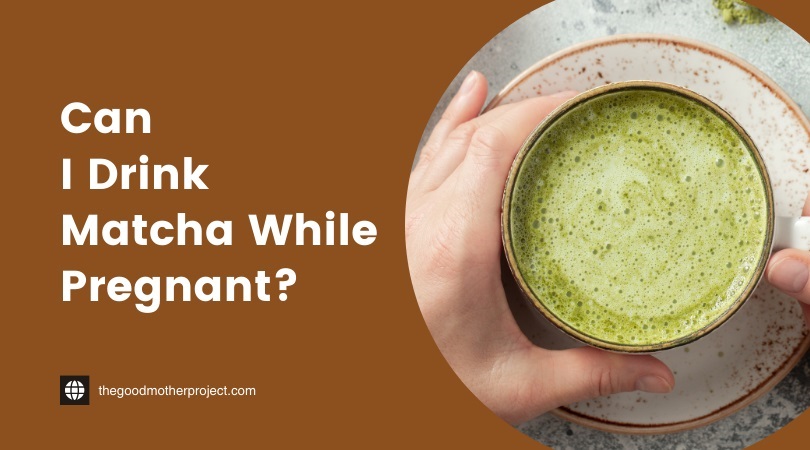Last Updated on January 6, 2025
Yes, you can drink matcha while pregnant, but moderation is key. Limit your intake to one cup per day to avoid excessive caffeine.
Matcha is a finely ground green tea powder that has gained popularity for its health benefits. Many pregnant women wonder about its safety due to its caffeine content. Caffeine can affect pregnancy, so understanding how much is safe is crucial.
Matcha offers antioxidants and other nutrients that can be beneficial, but it’s essential to balance these with your overall caffeine consumption. Consulting with your healthcare provider can help you make informed choices. Staying hydrated and focusing on a well-rounded diet should remain your priority during pregnancy. Enjoying matcha in moderation can still be a delightful part of your routine.
Matcha Basics: What You Need To Know
Matcha is a special type of green tea. It comes from powdered tea leaves. Pregnant women often wonder about its safety. Here’s what you should know about matcha.
The Origins And Popularity Of Matcha
Matcha has a rich history. It began in China over a thousand years ago. Then, it became popular in Japan. Today, it is loved worldwide.
- Traditional Use: Used in Japanese tea ceremonies.
- Modern Use: Found in lattes, desserts, and smoothies.
- Health Trend: Gained fame for its health benefits.
Many people enjoy matcha for its unique flavor. Its bright green color also attracts attention. Matcha is not just tea; it’s a cultural experience.
Nutritional Profile: Vitamins, Minerals, And Caffeine
Matcha is packed with nutrients. Here’s a quick look at its benefits:
| Nutrient | Amount per 1 gram |
|---|---|
| Vitamin C | 1.2 mg |
| Vitamin A | 14 IU |
| Calcium | 3 mg |
| Iron | 0.1 mg |
| Caffeine | 70 mg |
Matcha contains caffeine, but less than coffee. It helps you feel alert without jitters. Here are some key points:
- Energy Boost: Provides a gentle energy lift.
- Antioxidants: Rich in antioxidants that fight free radicals.
- Calming Effects: Can promote relaxation despite caffeine.
Understanding matcha helps in making informed choices. Always consult a doctor before making changes during pregnancy.
Safety Considerations For Pregnant Women
Pregnancy brings many changes. Nutrition becomes crucial during this period. Pregnant women often question safe food and drink options. One popular choice is matcha. This green tea has unique properties. Understanding its safety is vital.
Caffeine Content: How Much Is Safe?
Matcha contains caffeine. Pregnant women should monitor caffeine intake. Experts recommend limiting caffeine to 200 mg per day. One cup of matcha has about 70 mg of caffeine. Here’s a quick overview:
| Item | Caffeine Content (mg) |
|---|---|
| Matcha (1 cup) | 70 |
| Coffee (1 cup) | 95 |
| Green Tea (1 cup) | 30 |
| Espresso (1 shot) | 63 |
Monitor other caffeine sources. This includes chocolate, soda, and energy drinks. Balance is key for a healthy pregnancy.
Potential Risks And Benefits During Pregnancy
Matcha offers both risks and benefits. Understanding these helps in decision-making.
- Benefits:
- Rich in antioxidants.
- May boost metabolism.
- Can improve focus and energy.
- Risks:
- High caffeine can cause anxiety.
- May lead to sleep issues.
- Potential for heavy metal contamination.
Consult a healthcare professional before consuming matcha. Personalized advice helps ensure safety during pregnancy.
Practical Tips For Consuming Matcha When Expecting
Pregnancy brings many changes. Expecting mothers often wonder about their diets. Matcha can be a healthy choice, but moderation is key. Here are some practical tips to enjoy matcha safely during pregnancy.
Choosing The Right Matcha
Not all matcha is created equal. Selecting high-quality matcha is essential. Look for these qualities:
- Organic: Choose organic matcha to avoid pesticides.
- Bright Green Color: A vivid green indicates freshness.
- Finely Ground: Powder should be smooth, not gritty.
- Origin: Japanese matcha is often more reputable.
Read labels carefully. Avoid any additives or sweeteners. Pure matcha offers the most health benefits.
Ideal Serving Sizes And Frequency
Moderation is crucial during pregnancy. Here’s a simple guideline:
| Matcha Serving Size | Recommended Frequency |
|---|---|
| 1/2 teaspoon (1 gram) | 1-2 times per day |
| 1 teaspoon (2 grams) | Not more than once daily |
Limit caffeine intake to 200 mg daily. One cup of matcha contains about 70 mg of caffeine. Monitor your total caffeine from all sources.
Enjoy matcha in various ways:
- Mix with warm water for a traditional tea.
- Add to smoothies for a nutrient boost.
- Bake into healthy treats.
Stay hydrated. Drink plenty of water throughout the day. This helps balance caffeine effects.
Frequently Asked Questions
Can I Drink Matcha While Pregnant?
Yes, you can drink matcha in moderation during pregnancy. Limit your intake to avoid excessive caffeine.
What Are The Benefits Of Matcha?
Matcha is rich in antioxidants, boosts metabolism, and enhances mood. It’s a healthy choice in moderation.
Is Matcha Safe In The First Trimester?
Matcha is generally safe in the first trimester. Always consult your healthcare provider for personalized advice.
How Much Caffeine Is In Matcha?
Matcha contains about 70 mg of caffeine per 8 oz. Cup, which is lower than coffee.
Can Matcha Affect My Baby’s Health?
Moderate matcha consumption is unlikely to harm your baby. Always monitor your overall caffeine intake.
What Alternatives To Matcha Are Safe?
Herbal teas, decaffeinated green tea, or fruit-infused water are good alternatives during pregnancy.
Conclusion
Drinking matcha during pregnancy can be safe in moderation. Always consult your healthcare provider before making changes to your diet. Consider the caffeine content and choose high-quality matcha. Prioritizing your health and that of your baby is essential. Enjoying matcha mindfully can be part of a balanced lifestyle.








